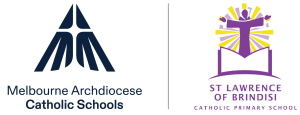Term Four Physical Sciences Overview
Exploration Learning Community Chemical Sciences
In Term Four’s Foundation Science unit, students will identify that objects are made of observable properties. Students will also identify and describe how the properties of different materials suit different designs and their purpose.
Students will conduct simple investigations, observing, questioning, sorting and collecting data and communicating their ideas using graphic organisers such as tables.
Discovery Learning Community Chemical Sciences
In Term Four’s Chemical Sciences unit, students will develop an understanding of the properties of materials and their uses. They will also investigate the effects of mixing materials together and identify that materials can be changed or combined for a particular purpose. Students will also investigate the ways Aboriginal and Torres Strait Islander Peoples combine different materials to produce utensils.
The scientific skills used in this unit will include predicting, observing, investigating and communicating.
Curiosity Learning Community Chemical Sciences
In Term Four’s Chemistry unit, students will consider how materials change when heated and cooled; they will also learn that there are three states of matter. Students will identify different materials such as a solid, liquid or gas through engaging interactive and hands-on experiences. They will explore how adding or removing heat can affect a material’s state of matter through investigations and experiments. This unit involves students working scientifically and using scientific thinking.
Challenge Learning Community Chemical Sciences
Term Four’s Chemical Sciences unit opens with students considering properties and how they are used to classify matter. They will then consider the specific properties and behaviour of the three states of matter – solids, liquids and gases.
Students investigate the behaviour of gases and relate it to the properties of gases. They will then plan and perform an experiment to compare the viscosity of liquids, considering and controlling variables to ensure the experiment is a fair test. Finally, students investigate the effect of heating and cooling matter, using their practical observations of gases to make inferences for liquids and solids.
Scientific skills utilised in this unit include classifying, predicting, observing, inferring, planning, measuring and evaluating.
Joanne Gianino
Science Specialist

